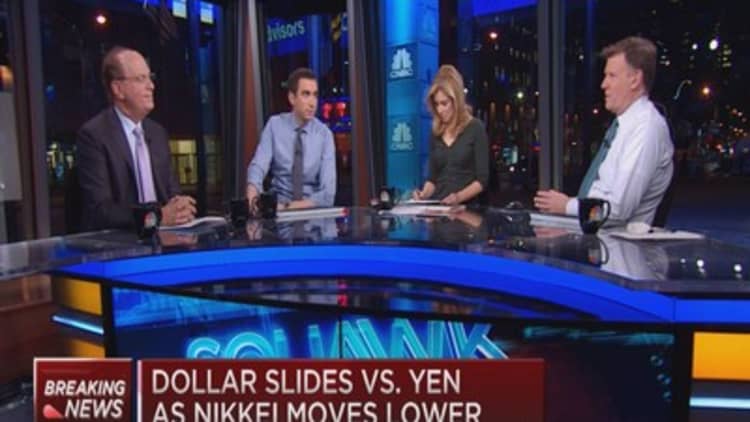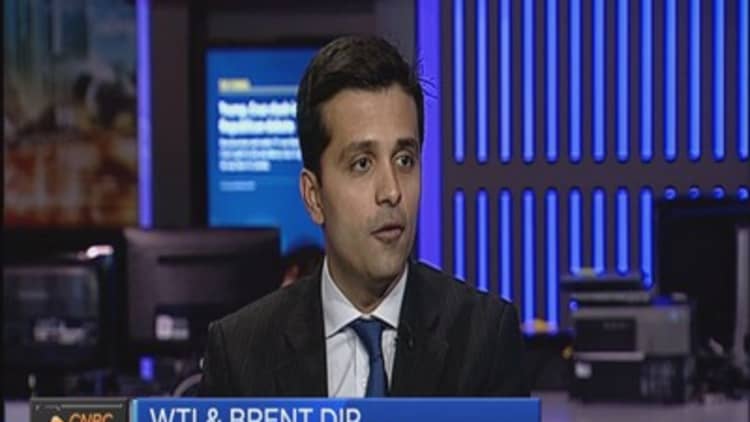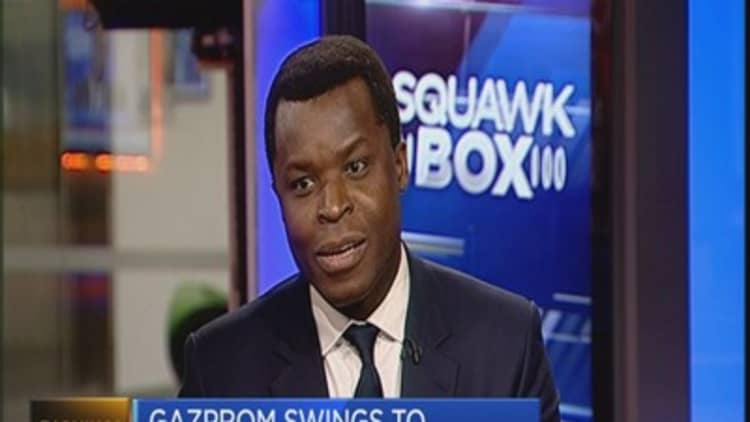


Oil prices hit fresh multi-year lows Friday amid fears of what effect Iran flooding the market with crude will have on the commodity.
Iran is on track to ship 1.10 million barrels a day in January, a 20 per-cent rise on December, according to Reuters reports.
The price of both Brent and WTI dipped below 30 dollars a barrel Friday as the market braced itself for the additional supply.
Brent is currently around 54 percent lower than its 2015 high while WTI is off around 48 percent from its peak last year.
And at least one analyst believes the falling price isn't about to be checked by oil producers' cartel, OPEC.
"If you're asking me at what level will OPEC stop production, then I would say much lower than this," said Abhishek Deshpande, analyst at Natixis, told CNBC Friday.
Deshpande added that even calls as low as $10 a barrel could have some merit.
"You see people looking at technical levels of $26 because this compares to past trades. But even those analyst calls of $20 and even $10 a barrel are based on technical levels," he said.
Commodity analysts expect a drop in oil prices as U.S. and European sanctions imposed on Iran when it refused to scale back its nuclear proliferation are lifted and a fresh agreement begins.
"When completion of the deal is announced, the oil markets could see an immediate knee-jerk reaction to the downside" said Societe Generale in a note on Wednesday.
The Tehran government said Wednesday that the International Atomic Energy Agency (IAEA) was set to confirm the country has met its obligations to ensure a lifting of sanctions by Friday.
"The IAEA will issue its final report on Friday to confirm Iran has met its commitments under the JCPOA (Joint Comprehensive Plan of Action)," Deputy Foreign Minister Abbas Araqchi said Wednesday according to a number of media reports.
The plan of action, is an international agreement setting out the terms of Iran's nuclear program.
Iran has told Reuters Thursday final steps were taking place and it's now ready for an agreement.
"The core vessel of the Arak reactor has been removed…and IAEA inspectors will visit the site and report it to the IAEA," the Atomic Energy Organization of Iran said.
Tehran expects sanctions could be lifted before Monday next week and that means the Islamic republic can turn the oil taps back on.
If you’re asking me at what level will OPEC stop production, then I would say much lower than thisAbhishek DeshpandeOil & Gas Analyst, Natixis
Iran has the fourth-largest oil reserves in the world and the International Energy Agency believes it could add as much as half a million barrels per day to exports as soon as sanctions are lifted.
In an already oversupplied market this could help push down an already plummeting oil price.
"There's not been an accommodation possible in OPEC…Saudi Arabia and the Gulf countries are not going to cut back, to make room for Iran coming back into the market," IHS vice chairman of consultancy Dan Yergin told CNBC on Wednesday.
However Jason Gammel, equities analyst at Jefferies told CNBC that a meaningful further drop is unlikely, even allowing for the added Iranian supply.
"We are starting to reach the stage where we start to cause interruptions to the physical supply of oil, so I do think the price needs to come up from where it is," said Gammel on Thursday.




